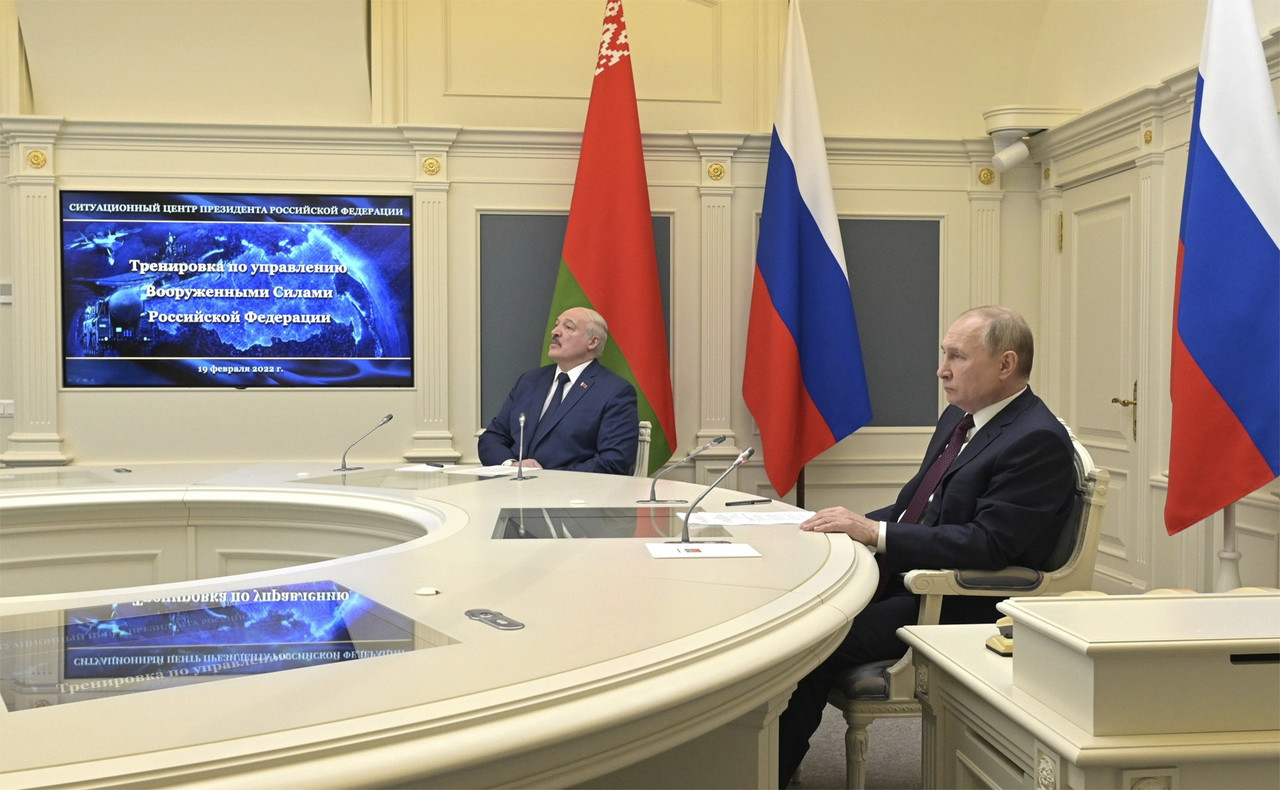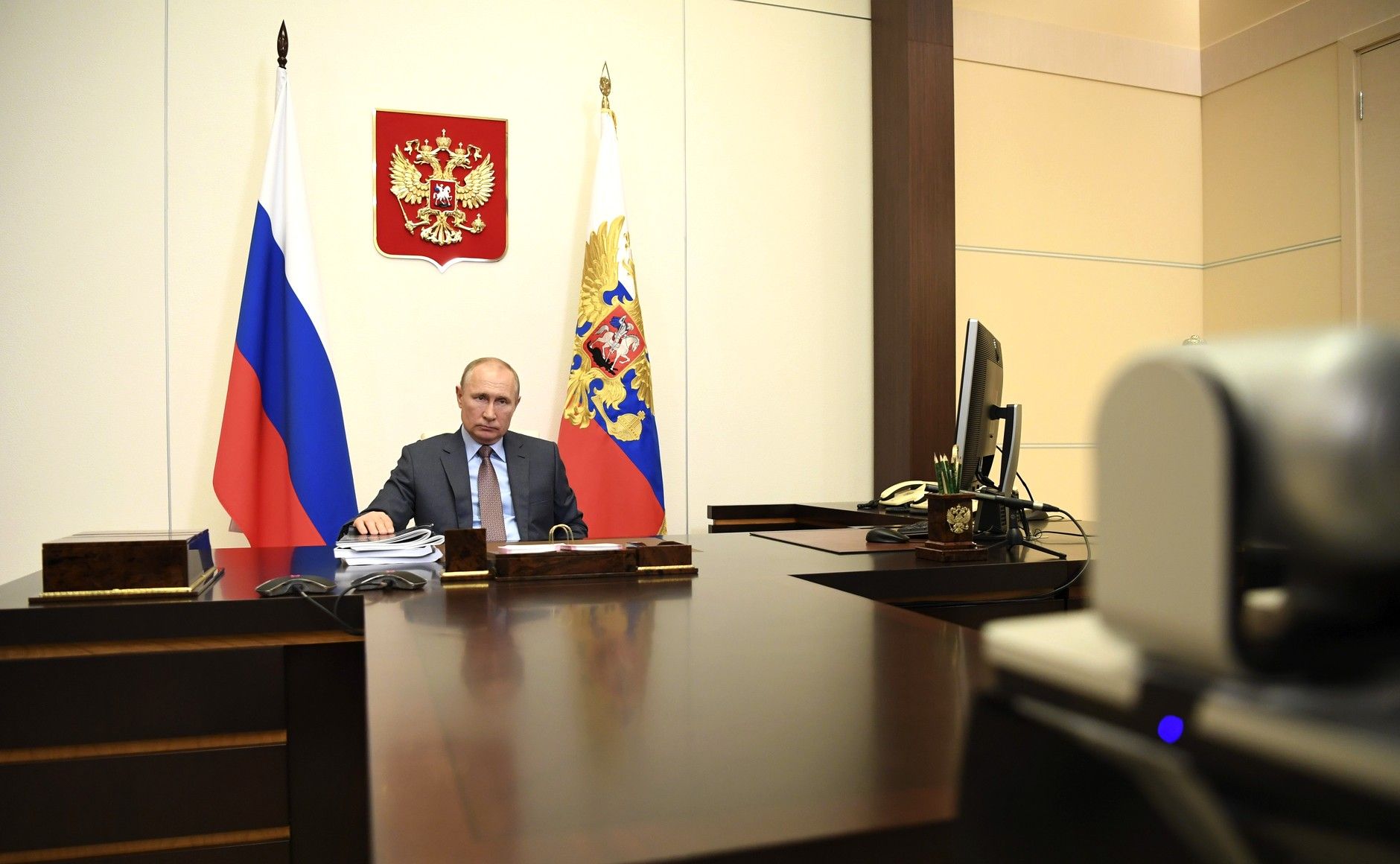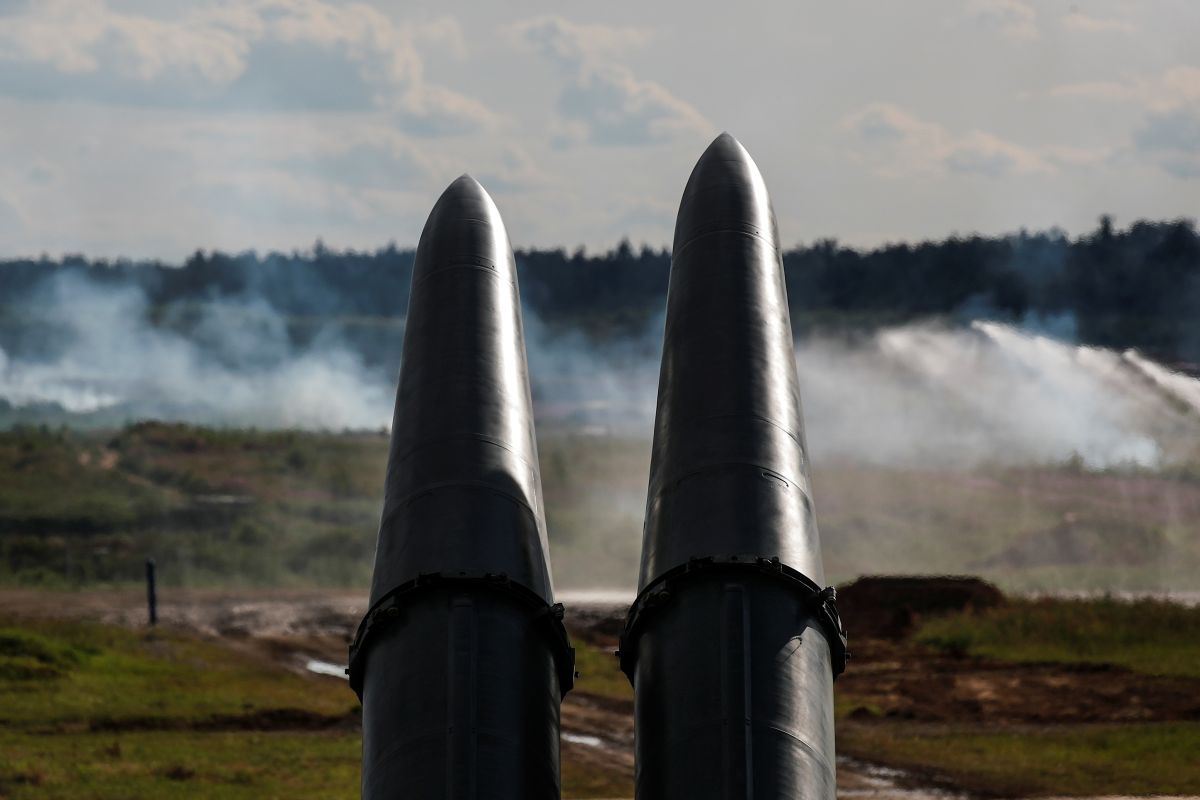Russia Preparing the Deployment of Nuclear Weapons in Belarus
Vladimir Putin’s remarks on the preparation of infrastructure to place Russian nuclear warheads in Belarus is another attempt to intimidate the West. The deployment of these weapons will not fundamentally change the military situation in the region, but the announcement again demonstrates Russia’s use of nuclear threats for aggressive purposes and Russian control over Belarus. The move thus reaffirms the need for further strengthening of NATO’s deterrence and defence posture.
 Alexei Nikolsky/Kremlin Pool / Zuma Press / Forum
Alexei Nikolsky/Kremlin Pool / Zuma Press / Forum
What exactly did Putin announce?
In a television interview aired on 25 March, Putin expressed readiness to deploy tactical nuclear weapons under Russian control to Belarus. He said that the construction of a special storage site for nuclear warheads in Belarus will be finished by 1 July. In line with announcements from 2022, Putin admitted that 10 Belarussian combat aircraft (Su-25) have been adapted for delivery of nuclear weapons and their Belarussian pilots will start training to use them this April. He also noted that Russia has given Belarus mobile launchers for the Iskander system, which can be armed with tactical nuclear-armed missiles.
Putin further claimed that cooperation with Belarus regarding nuclear weapons will be conducted on the same terms as nuclear sharing within NATO. The U.S. deploys nuclear warheads on the territory of some of its allies, which provide the means for delivery. During a conflict, the U.S. president may authorise the issue of these warheads to allies to use them in line with jointly agreed plans.
What does Russia want to achieve?
Russia is once again trying to intimidate the West by showing it can escalate tensions and implying it is ready to use nuclear weapons. Russia’s goal is to weaken international support for Ukraine. It may be also hoping to discourage Ukraine from continuing the fight and deter NATO countries from further strengthening their military presence on the Eastern Flank. Russia also could be interested in broadening its options for use of nuclear weapons against NATO as a way to compensate for the weakening of Russian conventional forces due to the war in Ukraine. References to NATO nuclear sharing as a precedent are in line with Russian policy presented as a rejection of the “primacy” of Western states and an exercise of equal rights to conduct similar actions in the international arena.
At the same time, Russia has been attempting to falsely blame the West for Russian actions. Putin claimed that preparations for the deployment of nuclear weapons in Belarus to be a response to the UK’s decision to provide Ukraine with armour-piercing munitions containing depleted uranium. Contrary to the Russian suggestions, these munitions are not nuclear weapons or a derivative. It is also telling that Putin is now using NATO nuclear sharing as a pretext, although in recent years Russia wrongly criticised it as a violation of the 1968 Treaty on the Non-Proliferation of Nuclear Weapons (NPT).
What will Russia’s decision mean for Belarus?
Putin’s announcement formally means an increasing role for Belarus as a Russian ally and is a response to numerous requests from Alexander Lukashenka for the deployment of tactical nuclear weapons on Belarusian territory. Lukashenka has asked for it many times, arguing that it is necessary due to the strengthening of the Eastern Flank by NATO countries after Russia’s annexation of Crimea and the alleged U.S. intentions to deploy nuclear weapons in Poland. However, this is rather further proof of Belarus’ lack of sovereignty. Most likely, Russia will not include Belarus in consultations on planning and deciding on the use of nuclear weapons, unlike the NATO mechanisms. The part of the country’s armed forces responsible for the nuclear mission will be fully controlled by Russia, which proves the growing limits on independent Belarusian defence policy.
Putin’s decision was announced on Freedom Day, commemorating the establishment of the Belarusian Democratic Republic in 1918, celebrations of which are suppressed by the Belarusian authorities, indirectly demonstrating Russian support for Lukashenka’s internal policy.
Does cooperation on nuclear weapons between Russia and Belarus militarily change the security situation of Poland and the Eastern Flank of NATO?
Russia’s cooperation with Belarus on nuclear weapons will not fundamentally alter the military balance in Europe. Russia already has various capabilities for nuclear strikes anywhere in Europe, including NATO’s Eastern Flank. In the latter case, its options include cruise missiles launched from submarines, ships, or aircraft, and ground-based launchers, as well as Iskander ballistic missiles already present in Kaliningrad Oblast and their air-launched variant (Kinzhal).
Cooperation with Belarus will only expand Russian attack options to a degree depending on whether nuclear warheads will be stationed there and their numbers, as well as on the eventual numbers and types of delivery vehicles fielded by Belarus and Russia. Russia could anyway deploy both warheads and launchers to Belarus in a crisis. Permanent deployment of warheads to a storage site in Belarus will shorten the time necessary for their transfer to the launchers and may mainly suggest the ability use them at the very start of a conflict. Through equipping Belarus with Iskander launchers, Russia increases the number of possible targets it could strike (with both nuclear and conventional payloads) and chances for missiles getting through air defences. On the other hand, outdated Su-25 aircraft are not a credible means to deliver nuclear warheads as they would be very vulnerable to being shot down in a conflict with NATO.
How should NATO respond?
Although the military consequences of the Russian announcement are limited, it supports the case for further strengthening of NATO nuclear deterrence. First, it is yet another example of Russia resorting to nuclear intimidation. Second, it confirms that the U.S. decision so far not to deploy additional nuclear forces to Europe and not to involve Eastern Flank countries in nuclear sharing does not encourage Russia to adopt similar self-restraint. Lack of a firm response might be taken by Russia as a sign of weakness, and thus embolden it to further escalate threats against NATO and continue the war against Ukraine.
Tightening of military ties between Russian and Belarus should also serve as a reminder to NATO members of the need to take into account the related conventional threats in allied decisions and planning. This applies to, among other issues, Poland and allies further developing air and missile defence, reconnaissance, and precision-strike capabilities at ranges in excess of 500 km.






